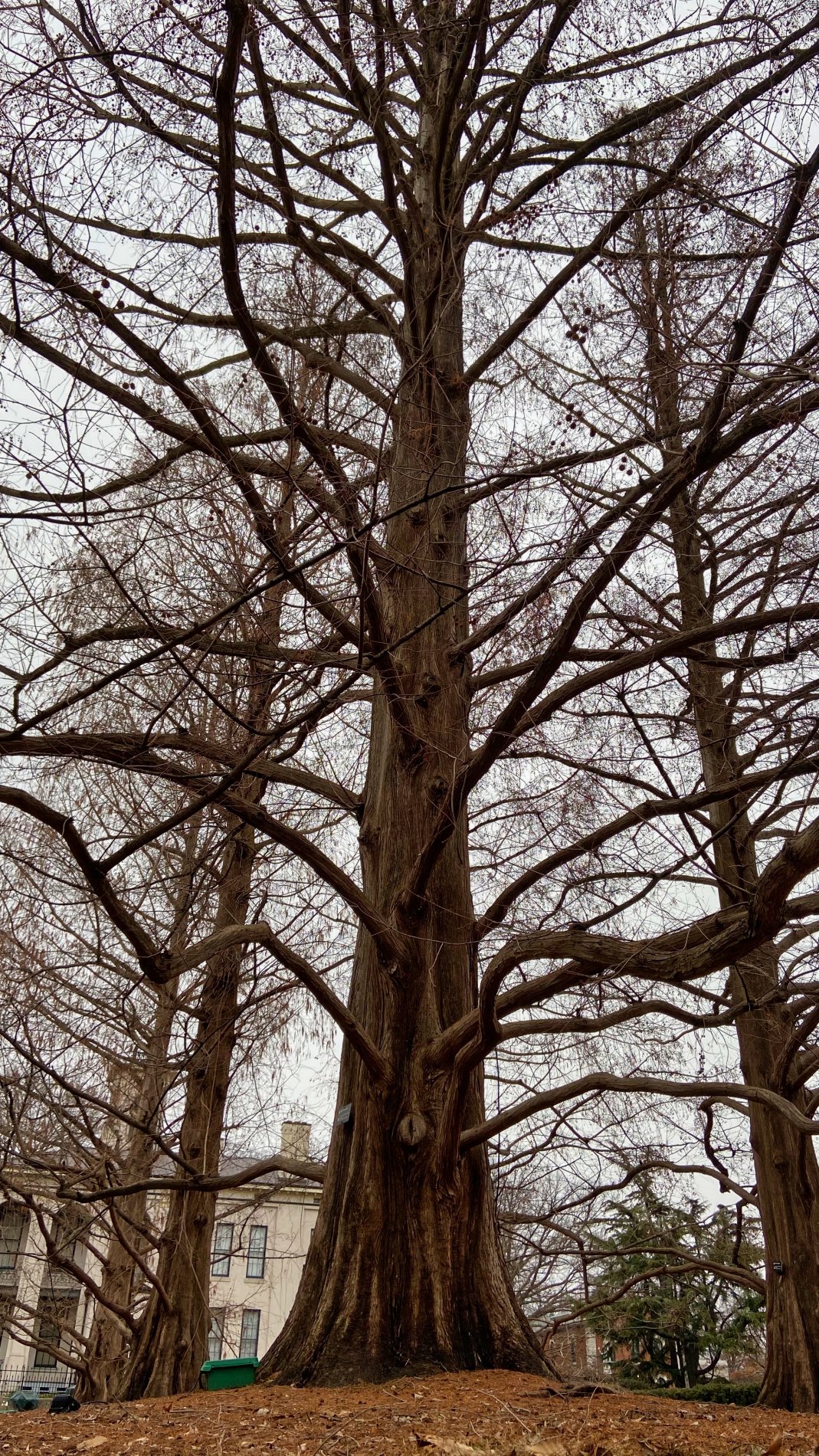Life has been too good to me recently, filling me with more upbeat energy than usual. That type of good fortune can make it difficult to sit still and concentrate on my work, so yesterday I took my monkey-mind for a brisk walk to the Missouri Botanical Garden. I then meditated while sitting on a park bench in front of a huge tree. I didn’t know that this big tree would trigger vivid thoughts about my parents and my attraction to dangerous ideas.

My dad was an engineer who designed weapons of war for McDonnell-Douglas. Now deceased, he was proud of his ability to analyze problems and to come up with answers, even when he was considering life’s heaviest mysteries. He also embraced many of the pat answers offered by his religion and repeatedly tried to shame me into accepting them, which led to the extremely strained relationship I had with him.
My mom is very much alive and, at age 87, she still lives independently. She did not work outside of the home, was not hardened by the outside world, and was not comfortable challenging the arguments and lectures my dad launched from his seat at the family kitchen table. Far from those dinnertime arguments between her husband and her teenage son, however, she allowed her mind to freely explore ideas based on a rather unfettered sense of curiosity. My mom often asked me simple questions around the house, not realizing that simple questions would be the ones most likely to challenge my comforting inner narratives and presumptions. Simple questions can even be dangerous.
Friedrich Nietzsche recognized that truth is dangerous and that it took courage to determine what is true. Are you willing to question your most basic beliefs? For Nietzsche, real philosophizing was a demanding and dangerous endeavor that many people simply cannot endure.
From her perspective, my mom simply asked questions about things that seemed interesting, like “What is time?” Or “Is more always better?” Or “What if the beliefs of Buddhism are correct?” To this day, she looks puzzled whenever I thank her for being such a free-thinker (which she was, well before that term became popular). Regardless, her dangerous questions took root in me and they prepared me to appreciate many of the extraordinary aspects of life’s “ordinary” things. Her questions were probably a big reason why I majored in philosophy and psychology and, ultimately, created my website, Dangerous Intersection.
[More . . . ]

